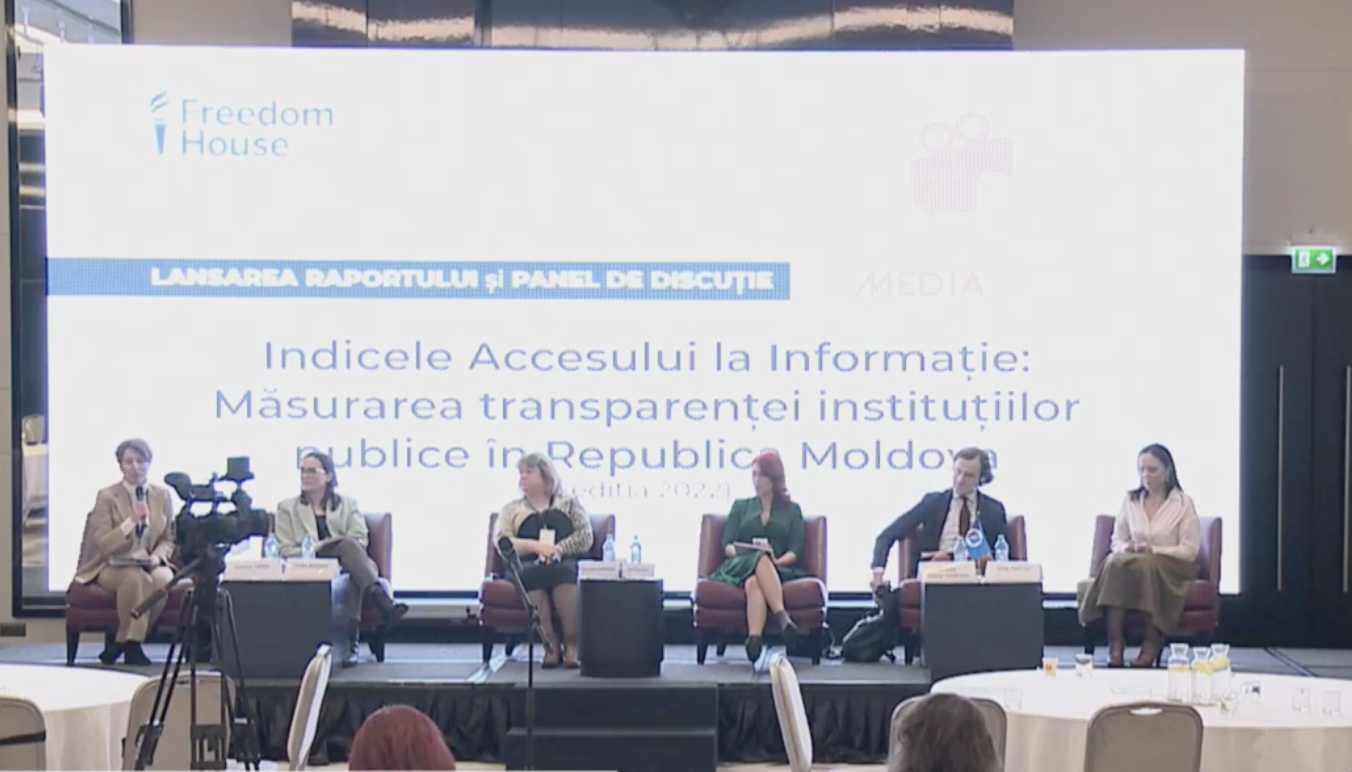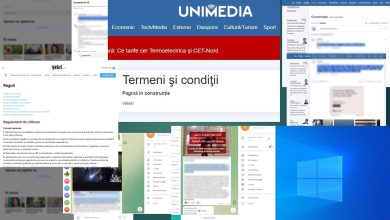Access to Information Index 2022: Decreased Level of Proactive Transparency, Ignored Demands, and a Law with Several Deficiencies

The central and local authorities have not made any significant progress in the sphere of proactive transparency over the past year, some institutions ignore demands for information, and the law regulating access to information contains a number of deficiencies. The conclusions are listed in the Access to Information Index 2022, a research for assessing public institutions’ transparency which was presented within the framework of the Mass Media Forum in Chisinau on November 22-23.
The Access to Information Index assessed at 47 points out of 100 this year is calculated on the basis of evaluating the three criteria: requested access, proactive transparency, and legislative framework.
Proactive transparency assesses the availability of basic datasets and information on the public institutions’ websites. To assess the way this rule is actually applied, the authors of the study analyzed the official pages of 58 public institutions and 15 state-owned enterprises and joint-stock companies where the state holds a share.
“The web page analysis results demonstrate a decreased level of proactive transparency. In most cases, only the organizational data is available on the pages of public institutions, which refers to the institution’s organization chart and the legal framework of its activity. It can be noticed that most institutions proactively inform the audience about employment opportunities. However, limited availability of financial data, namely the information related to the budget, financial reports, government procurement, and managers’ salaries, has become alarming. These shortcomings are only partially balanced out by government transparency mechanisms, such as Mtender public procurement portal and the National Integrity Agency page, which contains the officials’ wealth and interest statements. As to proactive transparency, no essential progress has been registered,” Stela Pavlov, a consultant in the sphere of the media, anti-corruption, and justice sector reforms, affirmed during the presentation of the Index data.
The experts also assessed the institutions’ performance in terms of processing demands for information of public interest, sending demands for information to all the entities included in the analysis. It turned out that, in most cases, it was difficult to obtain the data regarding the salaries of the heads of the institutions. The Ministry of Internal Affairs, the State Tax Service, the Environmental Protection Inspectorate, the Court of Accounts, and the National Bank of Moldova are among the institutions which completely ignored the above requests.
As to assessing the Law on Access to Information, one of the key problems identified is that the current law includes limited provisions on proactive transparency, “an aspect virtually ignored by this law,” according to Dawid Szescilo, the author of the Index, university professor and expert in public administration reforms. The research also demonstrates unclear rules concerning the fees applied for obtaining specific information and reveals the fact that, regardless of the constitutional guarantee of the universal right of access to information of public interest, the law seems to guarantee this right only to the residents of the Republic of Moldova. Legal entities and non-resident foreigners are not listed among the beneficiaries of the right to information.
While presenting the study’s conclusions, the expert also mentioned what could be done in the nearest future. “It is obvious that we have to proceed from a new law on access to information. (…) As far as I’m concerned, we’re approaching the stage of public consultations regarding the new draft law, and it is very important that all the stakeholders have an opportunity to contribute and to share your experience with the Government and the Ministry of Justice, to make sure that this law could significantly improve the situation,” Dawid Szescilo explained.




